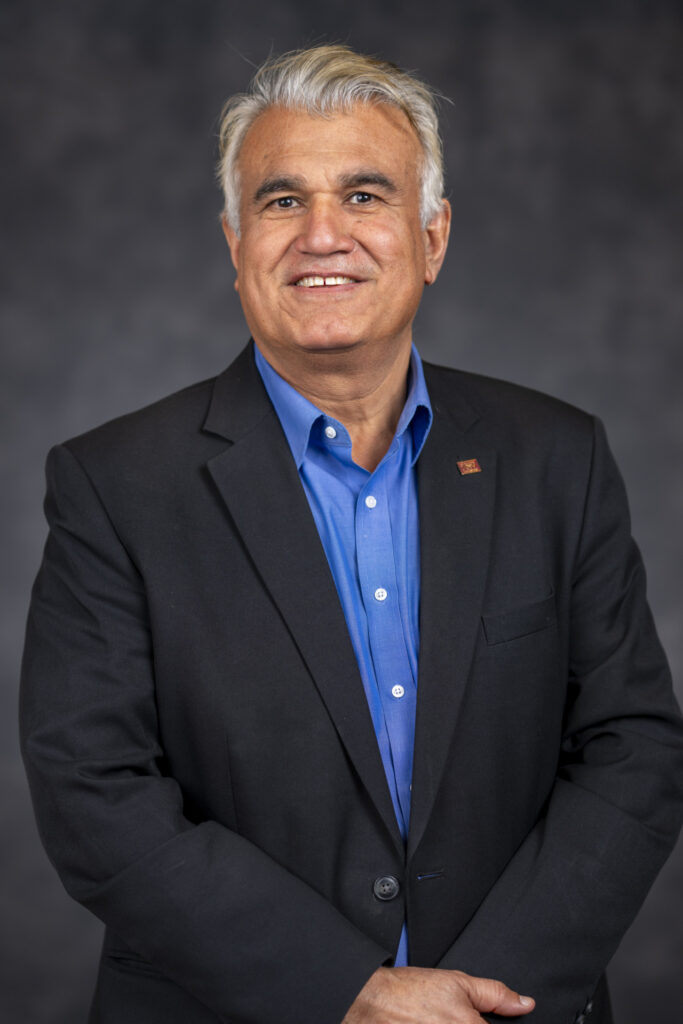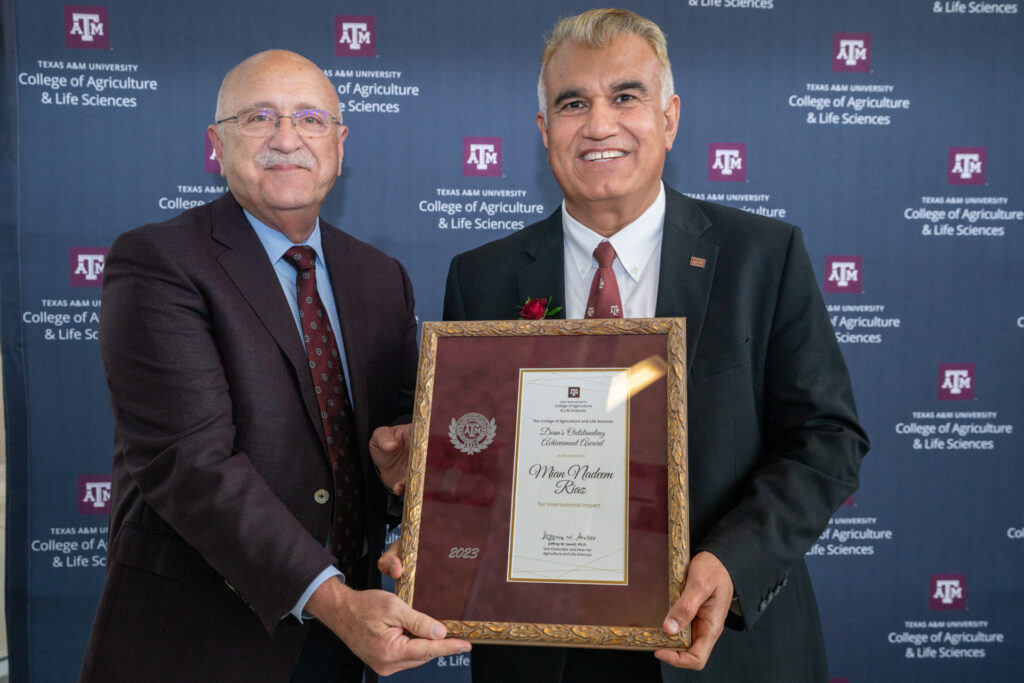Food technology expert gives Texas A&M students a taste of other cultures
Mian Riaz, Ph.D., strives to enhance cultural understanding and global food, nutrition security
When Mian Riaz, Ph.D. steps into a classroom, one of his goals is to help students gain insights into the customs and values of different communities by exploring and celebrating the diversity in foods.

Since joining Texas A&M University more than 30 years ago, Riaz, has established himself not only as an internationally recognized expert in religious and ethnic foods, but also an expert in the extrusion technology that forms processed foods into their desired shapes and sizes.
Previously the director of Texas A&M’s Food Protein Research and Development Center, Riaz is now associate head of the Texas A&M College of Agriculture and Life Sciences Department of Food Science and Technology, holder of the Professorship in Food Diversity and director of the Extrusion Technology Program.
Riaz teaches extrusion technology courses and the popular Religious and Ethnic Foods course, taken by about 1,200 students each semester. He has published seven books, 27 book chapters, 160 papers and has given over 600 talks in 60 different countries. His book “Halal Food Production” has been translated into Chinese, Persian and Korean and is a staple for university food science students worldwide.
Bringing experience to the classroom
Not only does Riaz explore and celebrate the many foods of the world through the Food Diversity Innovation Program, but he also works with companies to advance extrusion technology and improve food processing methods.
A recipient of the 2023 Institute of Food Technologies Achievement Award for International Food Security in honor of Bor S. Luh, Riaz was cited for his expertise on efficiently and safely processing foods and preserving their quality. He has conducted extensive research on snack-food processing, as well as the processing of pet and fish foods, using extrusion as a primary processing technique.
As an educator, Riaz aspires to create an interactive and dynamic learning environment that empowers students to actively participate in their educational journey and apply their knowledge beyond the classroom.
Below, he provides additional details on his academic responsibilities, research, writing, teaching and other efforts to share knowledge, improve technologies and cultural understanding, promote international cooperation, and enhance global food and nutrition security.
What are some of your primary duties as holder of the Professorship in Food Diversity?

My primary duties revolve around overseeing the Food Diversity Innovation Program. This program is designed to support students through undergraduate and graduate scholarships, facilitate knowledge exchange via the biennial Food Diversity Innovation Symposium, provide fellowships and offer research grants.
By exploring religious and ethnic foods, I hope to help students gain insights into the customs and values of different communities, fostering a deeper understanding of various perspectives. Through these educational initiatives, my aim is to help contribute significantly to the exploration and celebration of food diversity and promote scholarly excellence within the academic community.
What courses are you teaching and have you taught?
Currently, I am teaching Religious and Ethnic Foods, which is a course needed for the Food Diversity Certificate. This course is offered online in spring and fall semesters. It has one of the largest enrollments in the College with an average of 1,200 students each semester.
I also offer five short courses a year. Two are on foods — Snack Food Processing: Extruded Snacks and Tortilla Chips along with Food Extrusion: Cereals, Pulses, Proteins and Other Ingredients. There are three short courses about feed — Feeds and Pet Food Extrusion; Aquaculture Feed Extrusion, Nutrition and Feed Management; and Extruded Pet Foods and Treats.
What are some lessons you want students to learn from studying about religious and ethnic foods?
In my courses on religious and ethnic foods, I emphasize the vital lesson that understanding the cultural context of food enhances communication skills. By exploring diverse religious and ethnic foods, students gain insights into the customs and values of different communities, fostering a deeper understanding of people.
As future global citizens, students at Texas A&M are encouraged to appreciate the cultural significance embedded in food, enabling them to engage in meaningful conversations with people from different backgrounds. Beyond preparing them for careers, my aim is to equip students with the cultural awareness needed to navigate and contribute meaningfully to our multicultural world.
What is the importance of process-engineering in foods and what is your role as head of Extrusion Technology Program?
Process-engineering in foods is important for improving the efficiency of our food production, focusing on aspects like energy conservation and the best use of functional ingredients. My role as the head of the Extrusion Technology Program involves assisting companies in addressing their requirements and advancing extrusion technology. By leveraging my expertise, I contribute to the enhancement of food processing methods, helping companies optimize their processes to be more efficient and integrate beneficial functional ingredients into their products.
What are some important things to know about processing food and maintaining its quality?
In essence, a holistic understanding of ingredient dynamics, packaging influence, recognition of quality subjectivity and meticulous attention to storage conditions are key elements in ensuring the maintenance of food quality throughout the processing journey.
What is your teaching philosophy?
My teaching philosophy centers around fostering student engagement and connection with the material. I believe in employing diverse teaching methods, with a particular emphasis on projects. By integrating hands-on projects into the learning experience, I aim to provide students with practical applications of the theoretical concepts, encouraging a deeper understanding and long-term retention of the subject matter.
Ultimately, I aspire to create an interactive and dynamic learning environment that empowers students to actively participate in their educational journey and apply their knowledge beyond the classroom.
How did you feel about receiving the 2023 IFT Achievement Award for International Food Security?
I was honored to receive the 2023 IFT Achievement Award for International Food Security in honor of Bor S. Luh.
Firstly, this award acknowledges the impact of my research in the field of food science and technology, specifically in the context of emerging economies. It validates the importance of my work in developing cost-effective methods for food manufacturing and availability.
Secondly, it highlights the international exchange of ideas and cooperation in the field of food science and technology. It recognizes the collaborative efforts I have made with colleagues from different countries to share knowledge, develop technologies, and promote international cooperation to enhance food and nutrition security globally.
Thirdly, I appreciate that this award recognizes my commitment to education and capacity building, as these are both very important to me.





